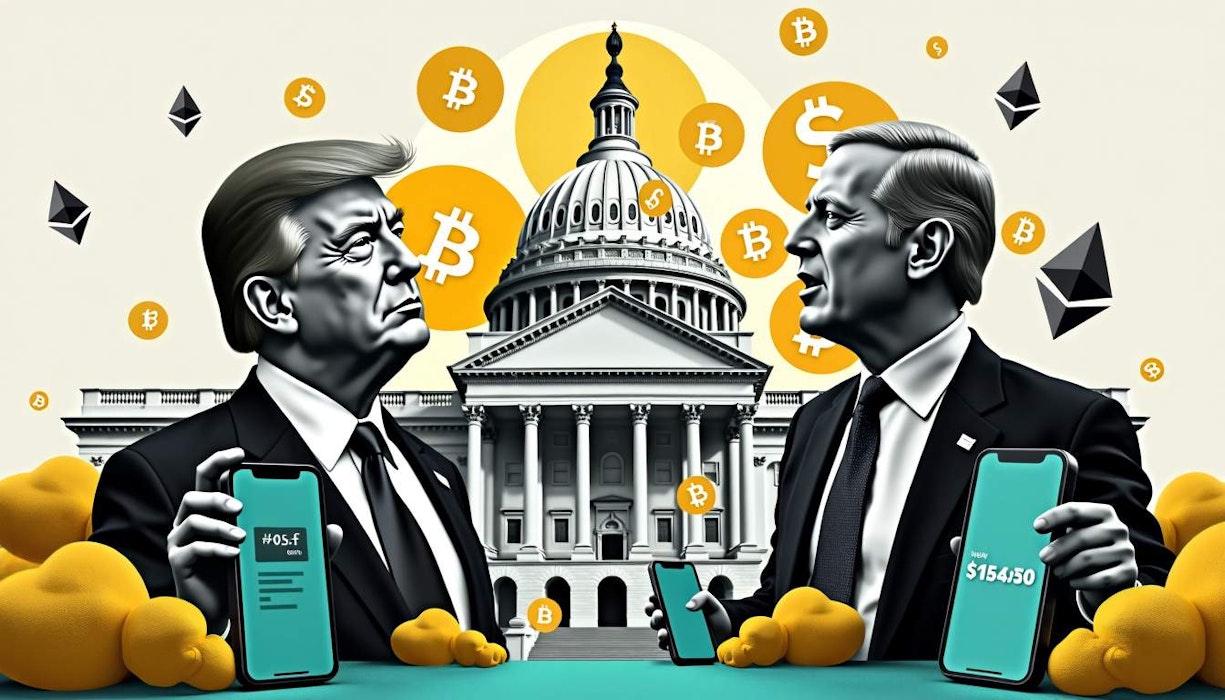The intersection of politics and crypto is a messy one, right? I mean, just look at the latest venture from former President Donald Trump. He's got this new DeFi project called "World Liberty Financial," and it's raising eyebrows everywhere. Not only does it seem to invite more regulatory scrutiny, but it also feels like we're heading into an era where the crypto industry might get even more politicized. Charles Hoskinson, the founder of Cardano, has some thoughts on this too. He warns that Trump's involvement could make an already complicated regulatory landscape even messier. In this post, I'm diving into how political endorsements affect crypto trading in the US and what it could mean for our future.
The Political Influence on Crypto
You can't deny it—political involvement in cryptocurrency really shapes how things go down in the industry. Governments are caught in a balancing act: they want to foster innovation while also keeping an eye on potential risks like money laundering and consumer fraud. Take President Biden's executive order as an example; it's all about "responsible financial innovation" but also about making sure everyone's aware of the risks.
Looking Closer at Trump's Project
Now let's talk about this "World Liberty Financial" thing. Hoskinson's not too thrilled about it. In a chat with the Financial Times, he pointed out that everything Trump touches seems to get a lot of hate from the left—and that polarization could lead to some serious investigations by U.S. regulators. Those kinds of things can shake up markets pretty fast.
Interestingly enough, Trump had previously called Bitcoin a "scam," but now he's talking about making America a "Bitcoin superpower." Hoskinson isn't holding his breath for any real support from either Trump or VP Kamala Harris; he doubts they have enough understanding of the space.
Regulatory Hurdles and Innovations
Political involvement often reflects a dual approach to cryptocurrency regulation. Governments aim to support the development and innovation of cryptocurrencies while also addressing associated risks. The lack of uniformity in regulations across different jurisdictions is a significant challenge. At the state level in the U.S., there is a general lack of uniformity in digital asset regulation, with each state having its own set of rules and licensing requirements. Globally, 60 countries have varying regulatory statuses, with some fully legalizing cryptocurrencies while others impose partial bans or enforce general bans.
Political involvement also drives international cooperation on cryptocurrency regulation. Standard-setting bodies and global governance institutions play crucial roles in creating industry standards and promoting cooperation among countries to address cryptocurrencies' borderless nature.
How It Affects Crypto Trading in The US
Honestly? The way crypto is getting politicized in America could lead to some shaky ground for markets over here. Just think about it—the upcoming election will have candidates with wildly different takes on crypto regulation, which can create chaos for investors trying to figure out what’s coming next.
And let’s face it: if one candidate promises lax regulations while another threatens a crackdown, you bet that’ll swing market confidence one way or another! Some folks argue that changes based on election outcomes are bound to happen—pro-crypto policies might just set off a bull run while stricter ones could send everyone packing back into traditional finance.
Global Perspectives & Market Reactions
Despite all this chatter around political endorsements though? Most experts seem convinced U.S politics won’t be driving forces behind global crypto markets anytime soon…if ever! It’s all about local contexts after all—Trump saying he’ll make America “the capital” isn’t exactly newsworthy outside these borders!
That said—it doesn’t hurt when rhetoric aligns positively with trader sentiment (or negatively) as we’ve seen time & again during cycles past….so maybe there’s something there?
At its core though—it seems bipartisan consensus forming around need for clear regulations might just pave way forward towards acceptance integration within mainstream financial systems…as long as those frameworks don’t stifle innovation!
In short: navigating these waters requires understanding complexities involved—but doing so may well ensure stability prosperity future participants ecosystem!
